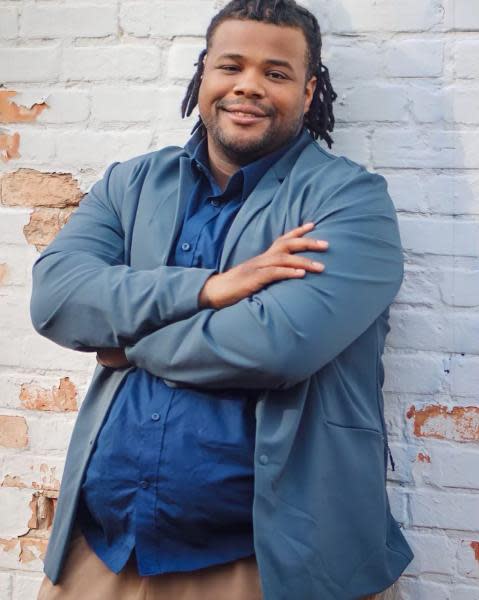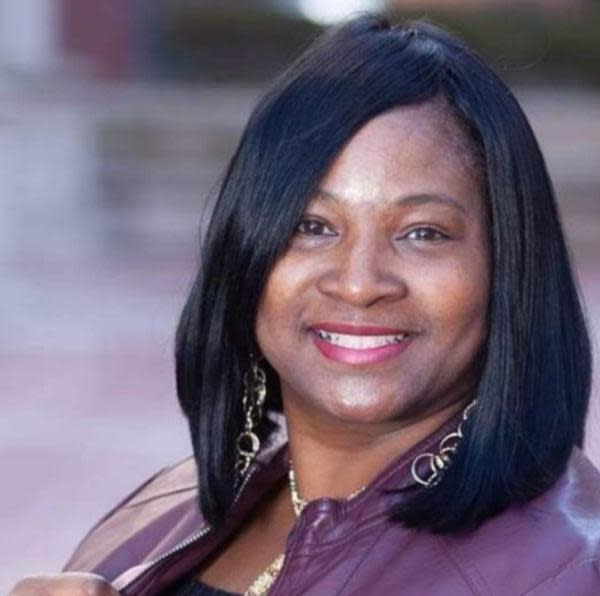South Bend candidates say how they would help council Dist. 3, a diverse array of areas
The Tribune is partnering with the League of Women Voters of the South Bend Area and the American Democracy Project of Indiana University South Bend to publish candidates' answers to questions on the issues. The League, with local help from the ADP, operates Vote411.org, a website with information about the candidates and their positions on key issues.
The Tribune has agreed to run candidate answers unedited, meaning any spelling, typographical or grammatical errors are the candidates' own. The Tribune is publishing only some of the questions from a selection of contested races. Additional questions and answers, including from candidates who have no opponent in the primary, are available at Vote411.org.
Early voting for Indiana's May 2 municipal primary election began last week. To vote early, either fill out an application for a mail ballot at https://indianavoters.in.gov/MVPHome/PrintDocuments or vote in person. In St. Joseph County, there are two early-voting locations: the County-City Building, 227 W. Jefferson Blvd. in South Bend; or the Mishawaka County Services Building, 219 Lincoln Way W. in Mishawaka. Voters must present a valid government-issued photo ID.
Early-voting hours at both locations are 8 a.m. to 4:30 p.m. Mondays through Fridays (except May 1, when voting closes at noon.); 8 a.m. to 4 p.m. on Saturdays April 22 and 29; 1 to 4 p.m. Sunday, April 30.
In South Bend's Common Council 3rd District, current President Sharon McBride is challenged in the Democratic primary by Drew Duncan. The winner will face Republican Sonia Perez in the fall. Perez has not responded to the questionnaire yet, but if she does before the general election, her answers will appear then.
Drew Duncan

Occupation: Marketing specialist
Email: theduncangroupllc@gmail.com
Website: integrity4district3.net
Campaign phone: 574-323-0000
Facebook: facebook.com/DrewForSouthBendDistrict3
Sharon McBride

Occupation: Director of St. Joseph County Community Corrections DuComb Center; President of South Bend Common Council
Email: sharonlyvettemcbride@gmail.com
Campaign phone: 574-514-3743
What is most unique about the district you seek to represent? How will you promote your district's needs while working with other council members?
Duncan: District 3 is unique because it’s the most diverse district in the city and so are our issues. Riverfront folks are concerned about illegal dumping. Our South Side and Miami Village neighbors are concerned about gun violence. Our River Park and Sunnymede neighbors want more robust small business support. Our concerns are as diverse as our people, but one concern is had by everyone. District 3 doesn’t feel represented. Our neighbors have reached out with concerns and their calls and emails have gone unanswered. We’ve seen parts of the city grow while most of District 3 has fallen into disrepair. I’ll promote my district’s needs by listening to their concerns, taking their phone calls or meeting for a coffee or block tour. I will fight to overturn the gag order on citizens naming council members during public comments.
McBride: District 3 is unique both socially and economically. When I was elected to serve, my first action was to bring the various neighborhood associations, stakeholders, and businesses together to seek their input. This district has two institutions of higher learning, two high schools, one intermediate school and three elementary schools. Most recently, we welcomed the United Way’s 1Roof Neighborhood Community Center. In addition, the district is home to the Potawatomi Zoo. Another attribute of the district is the partnership between 466Works, SOAR Neighborhood Association, and the City in building affordable housing that has a tremendous impact on reshaping the neighborhood. I will continue to be present, responsive, and a voice for the District while continuing to support my colleagues to enhance the quality of life for all.
What is the best way to curb crime? Should we increase police staffing, technology and budgets? Or should we redirect resources away from policing? Explain your reasoning.
Duncan: I will fight to refund street outreach programs that have been drained. Brotherhood fellowship programs have reduced gun violence by up to 80% in some regions where implemented. We have to start gun tracing so that we can hold bad faith actors accountable. I will fight to bring well paying jobs to our city and district. We have to expand our mental health resources. I will fight to expand public transportation. I will fight to give houseless intervention programs more funding.
McBride: The Council has provided funding needed for our police department to become fully staffed. The Council has also provided the department with the latest technology, making it one of less than a dozen departments with a state-of-the-art virtual crime center. Simultaneously, the Council has also provided record funding to social services to help reduce crime by providing social services and wrap around services to those dealing with mental health and addiction. The Council, city, police department, and the residents must all work together and continue to tackle crime in our community. Lastly, we must focus on our children. There must be open dialogue with our youth to find out their barriers and address their concerns by allocating resources to minimize those barriers.
Many recognize a disparity in economic growth in different parts of the city. What steps will you take to ensure economic growth and development is more widely distributed across the entire community?
Duncan: A part of addressing the disparity and economic growth between the different parts of the city is electing people who have lived in its poorest parts. Neighborhood investment should be addressed on need not favoritism. Spreading economic growth throughout all parts of the city ensures that all ships in the harbor rise. We cannot continue to create these microcosms of wealth at the expense of neighborhoods that have never seen investment. I would specifically focus on major corridors like Miami Village. There has not been a major investment from city dollars in decades! Building up critical business infrastructure in that corridor would make the neighborhoods more walkable and attract a tax base.
McBride: I have and will continue to advocate for development in all areas of the city for equitable resources throughout all districts. In District 3, I have been a strong advocate for investing in the Miami and Michigan Street Corridors and bringing businesses into the area to uplift both neighborhoods. For example, I listened to my constituents and Randolph Park is now a fully operational park that is safe for kids and families to gather and play. This would not have happened without continued dialogue with the neighborhood association and members of the community. I will continue to advocate and support the curb and sidewalk allocation program, traffic calming, infrastructure, and affordable housing, especially in disparaged neighborhoods.
What can the city do to address the issues of children and adults living in poverty and/or homelessness in the community?
Duncan: The city cannot forever be in the business of housing all of the houseless. But what the city can do is support nonprofit partners in the community. They have crafted programs that can successfully fund themselves and have transition programs for their residents. Safe “no barrier entry” facilities must exist to address houseless folks dealing with substance abuse and mental health crises. These programs must include wraparound services, including mental health and employment programs. We need to heavily vet nonprofit organizations taking tax dollars and require they develop a metric to measure progress. We have to expand public transportation so folks can get to work. As a resident who found myself homeless in previous years, this issue runs deep.
McBride: In addressing the issue of homelessness, poverty, and children there are multiple factors that affect this population. We need to focus on the systemic issues and address the causes that create poverty and homelessness. I will continue to allocate funding to our neighborhoods across the city. The Council has committed to funding the Motels4Now program with wrap around services for people who experience substance abuse and mental health crisis. The city has partnered with SB Heritage foundation and built Oliver Apartments, Hope Avenue, and the Youth Service Bureau (YSB) development that focuses on youth homelessness. I will continue to be an advocate for some of our most vulnerable residents.
This article originally appeared on South Bend Tribune: South Bend candidates speak to issues facing Dist. 3 and rest of city
